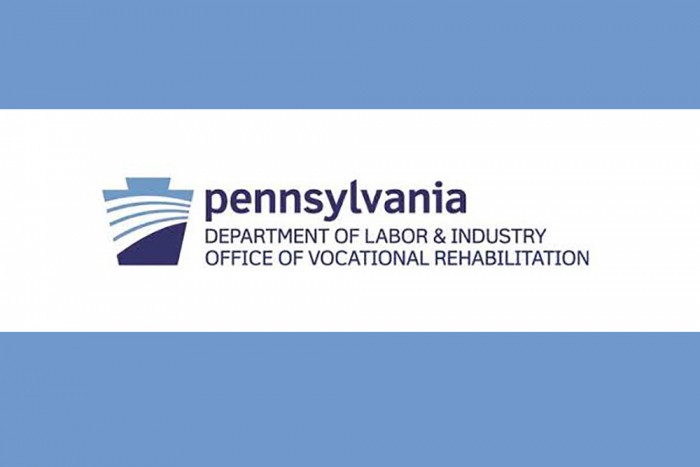Virtual Film Discussion on Preventing Suicide and Supporting Loss Survivors September 22
Save the Date:
Virtual Film Discussion on Preventing Suicide and Supporting Loss Survivors
Tuesday, September 22, 2020, 4:45 pm – 5:45 pm
September is Suicide Prevention Month
Join us to watch scenes from the award-winning film Scattering CJ, the moving story of one family’s loss to suicide and the thousands of people who responded in their time of need.
And hear from speakers, including:
- Dr. Dale Adair, Medical Director, Pennsylvania Office of Mental Health and Substance Abuse Services (OMHSAS)
- Hallie Twomey, CJ’s mother
- State Representatives Mike Schlossberg (D) and Tom Murt (R)
Please note this film contains descriptions of suicide that may be disturbing to viewers. Viewer discretion is advised. If you or someone you know is in need of support, please call 800-273-TALK (8255).
EVV for Personal Care Services Bulletin
CMS Launches Streamlined Care Compare Health Care Tool
The Centers for Medicare and Medicaid Services (CMS) has launched a new health care comparison tool, Care Compare, that provides a single user-friendly interface that patients and caregivers can use to make informed decisions about health care based on cost, quality of care, volume of services, and other data. The site provides information about doctors, hospitals, nursing homes, and other health care services in one location rather than searching through multiple tools. In addition, patients can obtain information about quality measures, helpful hints and guides, and costs for procedures. Additional information about this new tool is available from the Press Release issued by CMS.
REMINDER – Your Vote Needed: ANCOR Board of Directors
DMVA Encourages Everyone to Light a Candle on World Suicide Prevention Day
About 17 Veterans Die Each Day by Suicide
FOR IMMEDIATE RELEASE
September 9, 2020
Annville, PA – The Pennsylvania Department of Military and Veterans Affairs (DMVA) is encouraging everyone to light a candle at 8 p.m. on Sept. 10 in observance of World Suicide Prevention Day. The annual observance is organized by the International Association for Suicide Prevention.
About 47,000 people commit suicide a year in the United States, but military veterans are 1.5 times more likely to die by suicide than Americans who never served in the military. For female veterans, the risk factor is 2.2 times more likely. When looking at these statistics and factoring in that Pennsylvania serves nearly 800,000 veterans – the fourth largest veteran population in the nation – it is easy to see why the DMVA is so actively involved in suicide prevention initiatives.
“The DMVA and our dedicated partners work together every day to reduce the number of veteran suicides to zero,” said Rick Hamp, special assistant to the deputy adjutant general for Veterans Affairs. “Lighting a candle on World Suicide Prevention Day is not just a heartfelt gesture, it allows a conversation to begin and hopefully spreads an important message that we all care about those lost to suicide, survivors of suicide and those considering suicide. Anyone can help prevent veteran suicide.”
Hamp is also Pennsylvania’s team lead on the Governor’s Challenge to Prevent Suicide Among Service Members, Veterans and Their Families. Pennsylvania is one of 27 states taking part in the Governor’s Challenge. Participants work to implement state-wide suicide prevention best practices and learn from stakeholders nationwide.
Representing Pennsylvania and the DMVA, Hamp recently served as a presenter during the U.S. Department of Veterans Affairs Substance Abuse and Mental Health Services Administration Virtual Suicide Evaluation Conference.
To learn more about the DMVA, visit us online at www.dmva.pa.gov or follow us at www.facebook.com/padmva or www.twitter.com/padmva.
MEDIA CONTACT: Joseph Butera: 717-903-6791
# # #
OVR Virtual Job Fair 2020
Gov. Wolf Calls for Legislative Action to Help Homeowners and Renters Avoid an Eviction Cliff
Highlights from the Upcoming RCPA Conference: Plenary 2
HHS Updates Previous Communication About CARES Act Application Deadline
This communication is to update and replace the ListServ email sent on August 4, 2020 regarding the subject: Updated- CARES Act Provider Relief Fund Payments Available for Medicaid/CHIP Providers – Application Deadline Extended to August 28, 2020. The U.S. Department of Health and Human Services (HHS) has extended the deadline to submit the application to HRSA for this funding to September 13, 2020. This information has been updated below. Please disregard the previous communication.
Eligibility Requirements:
To be eligible to receive HHS’ Medicaid Provider Phase 2 General Distribution payments, initial key eligibility requirements for Medicaid and CHIP programs and/or Medicaid and CHIP managed care organization providers include:
- The provider must have directly billed or own (on the application date) an included subsidiary that has billed a state Medicaid/CHIP program and/or a Medicaid/CHIP managed care plan for health care-related services between January 1, 2018 and December 31, 2019;
- The provider must have either (i) filed a federal income tax return for fiscal years 2017, 2018 or 2019 or (ii) be an entity exempt from the requirement to file a federal income tax return and have no beneficial owner that is required to file a federal income tax return (e.g. a state-owned hospital or healthcare clinic);
- The provider must have provided patient care after January 31, 2020;
- The provider must not have permanently ceased providing patient care directly, or indirectly through included subsidiaries; and
- If the applicant is an individual, they must have gross receipts or sales from providing patient care reported on Form 1040, Schedule C, Line 1, excluding income reported on a W-2 as a (statutory) employee.
Providers who have received a payment under Phase 1 of the General Distribution are no longer prohibited from submitting an application under Phase 2 of the General Distribution. Providers who received a previous Phase 1 – General Distribution payment are eligible to apply and, if they have not yet received a payment that is approximately 2 percent of annual revenue from patient care, may receive additional funds.
Examples of types of Medicaid/CHIP providers that are eligible for these payments include pediatricians, obstetrician-gynecologists, dentists, opioid treatment and behavioral health providers, assisted living facilities, and other providers of home and community-based services. In order to receive Provider Relief Fund payments, eligible Medicaid/CHIP providers must take action through HRSA’s application portal and comply with the Medicaid Relief Fund Payment Terms and Conditions.
Provider Relief Fund payments will be at least two percent (2 percent) of reported gross revenue from patient care. Eligible Medicaid/CHIP providers can report their gross annual patient revenue through the Enhanced Provider Relief Fund Payment Portal and the final amount that a provider receives will be determined after such data is submitted, including information on the number of Medicaid patients served. HHS has issued a comprehensive set of instructions for submitting an application through the application portal.
Before applying through the Enhanced Provider Relief Fund Payment Portal, applicants should:
- Read the Medicaid Provider Distribution Instructions – PDF
- Download the Medicaid Provider Distribution Application Form – PDF
In addition, DHS encourages Medicaid/CHIP providers to carefully review the Medicaid Relief Fund Payment Terms and Conditions with their attorneys and accountants on the appropriate use of and questions about CARES Act Provider Relief Funds.
HHS has created a listing of CARES Act Provider Relief Funds Frequently Asked Questions (FAQ).
The complete press release is on the HHS website.
A PDF fact sheet explaining the application process has also been released to address questions. Please note that the fact sheet lists the outdated application submission deadline. The application submission deadline is now September 13, 2020.
More information about eligibility and the application process is also available on the HHS website.



















